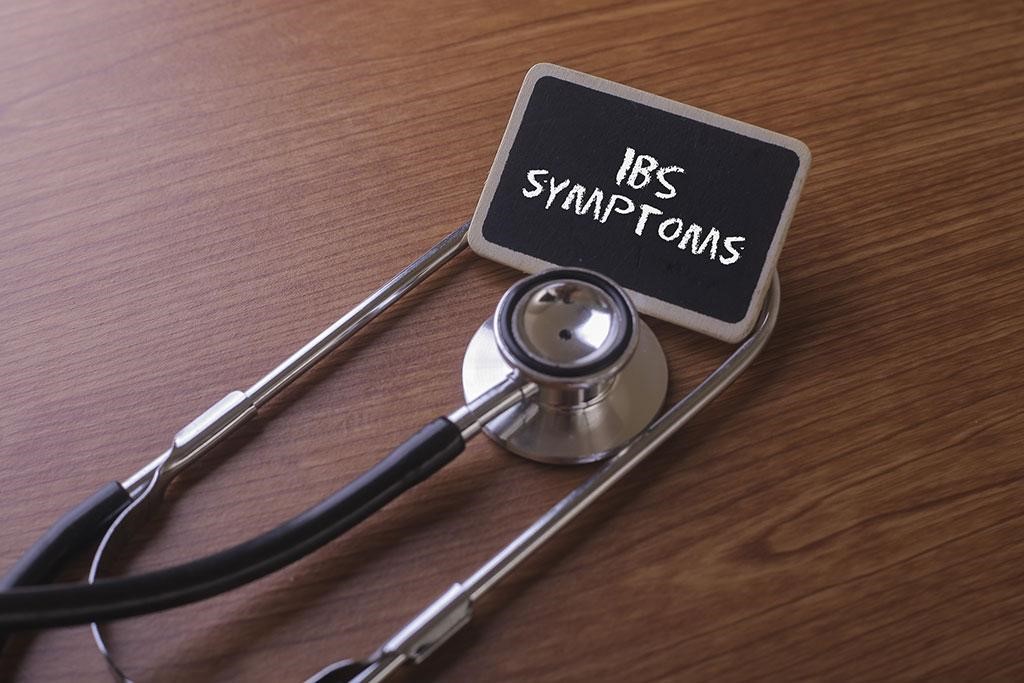Everything You Need to Know about SIFO (Small Intestinal Fungal Overgrowth)
Could SIFO be causing your unexplained IBS symptoms?
Could a fungal infection in the small intestines be the cause of your gastrointestinal symptoms and leaky gut?
Recent research at Augustana University found that an overgrowth of fungus in the gastrointestinal tract might be the root cause for more than 25% of IBS patients!
When it comes to gut infections, small intestinal fungal overgrowth or SIFO is the new kid on the block. SIFO was introduced to the medical community in a research paper published in 2015 1. As with any new discovery, there are skeptics. And, of course, more research is needed.
Personally, I think SIFO may prove to be a very important finding when it comes to unexplained gastrointestinal symptoms. I’m glad to see this topic emerging and I am following the research closely.
Most of my readers are familiar with small intestinal bacterial overgrowth or SIBO by now. Our understanding of how to treat SIBO has really evolved in the last few years and it’s helping a lot of patients. But I also see a subset of patients in my clinic who have all of the symptoms of SIBO (gas, bloating, belching, abdominal pain, diarrhea or maybe even constipation) and yet their digestive tests are normal.
I’ve always suspected that something else was wrong in these cases; something that has nothing to do with bacteria.
The symptoms of SIFO and the symptoms of SIBO are identical.
Both conditions involve the symptoms that we associate with IBS or irritable bowel syndrome. But the culprit is completely different: Fungus.

A Fungus Among Us
Fungal infections are known to occur outside the gastrointestinal tract and can cause conditions like athlete’s foot, ringworm, vaginal yeast infections, thrush and more.
When it comes to the gastrointestinal tract, fungal strains (like bacterial strains) are a normal part of the gut ecosystem and not usually a cause for concern. Bacteria and fungi mostly colonize the large intestine; the small intestine is only lightly colonized as it provides a much less hospitable environment. Problems start to occur when heavier colonization takes place in the small intestine and leads to overgrowth.
What happens when there’s an overgrowth in the small intestine?
- If it’s an overgrowth of bacteria, you have SIBO
- If it’s an overgrowth of fungus, you have SIFO
Those who were negative for SIBO often had SIFO
In a multi-year study of 124 patients with otherwise unexplained gastrointestinal symptoms, more than 25% of the patients were diagnosed with SIFO through endoscopic testing 1.
Symptoms of SIFO
Belching, bloating, indigestion, nausea, diarrhea, and gas are the digestive issues that are most often found with SIFO.
Unfortunately, these are very common symptoms and this makes diagnosing SIFO via symptoms difficult. It’s common for SIFO patients to see multiple practitioners, endure repeated GI tests and still have no diagnosis.
Treatment for fungal infection does bring dramatic improvement in gastrointestinal symptoms for these patients. Patients also report improvements in:
- Joint pain and discomfort
- Fatigue and energy levels
- Headache
What Causes SIFO?
There are a number of factors that can increase your risk for SIFO:
- Excessive use of proton pump inhibitors
- Excessive use of antibiotics
- Taking immunosuppressant drugs
- Diabetes
- Ehlers-Danlos syndrome
- Motility disorders
- Colectomy 2
Lack of stomach acid also plays an important role in SIBO and SIFO. Stomach acid production is crucial for gut health. One of the important functions of stomach acid is killing bacteria and fungi before they enter the small intestine. Some people don’t produce enough stomach acid and this increases their risk for SIBO and SIFO.
Some conditions increase the likelihood you have low stomach acid, including:
- Autoimmune conditions
- Anemia
- Being over sixty-five
- Chronic use of painkillers or antacids
I want to make a special note about proton pump inhibitors (PPIs).
If you use proton pump inhibitors over long periods of time, you significantly increase the risk of bacterial and fungal infections in your gut 3, 4, 5.
PPIs are designed to lower stomach acid. They play an important role in the treatment of some GI disorders. For example, short-term use of proton pump inhibitors is a very effective treatment for stomach ulcers. But I believe these drugs are overprescribed. Please use proton pump inhibitors with caution.
Testing for SIFO
There are a number of ways to test for bad bugs the gastrointestinal tract. We can do a stool test to identify an overgrowth of pathogenic bacteria like H. pylori, Campylobacter and Salmonella or protozoa like Blastocystis hominis and Giardia. We can use a breath test to identify a SIBO infection. None of these tests are perfect, but they do provide good diagnostic options.
When it comes to SIFO, there are no readily available diagnostic tests.
In the research lab, SIFO tests are done by extracting fluids from the digestive tract with an endoscope. This is a highly invasive procedure and it’s not practical for clinical practice. While there may be some exciting new diagnostic tests on the horizon, for now we must diagnose SIFO based on clinical evidence and empiric treatment.
Clinical Evidence
If a patient has significant digestive issues that correspond with symptoms of SIFO and if testing for other GI infections is negative, we can suspect SIFO.
Empiric Treatment
If SIFO is suspected, the best approach is to go ahead and try an antifungal treatment to see if it works. This is called empiric treatment. If the patient’s digestive issues start to clear up, we can confirm, the diagnosis of SIFO.
Prescription antifungals and natural treatments for SIFO are quite safe. This makes empiric treatment a good choice for SIFO.
Treating SIFO
Antifungal Drugs for SIFO
Standard treatment for SIFO is 3 weeks of antifungal drugs. Fluconazole is the top choice drug because it is specific to candida and its cousins. Alternative antifungal drugs are itraconazole or posaconazole.
Nystatin may not be as effective for SIFO because it appears to get broken down by stomach acid and may not reach the small intestine at an effective dose.
Patients should be aware that these medications can have significant drug interactions, especially if patients are taking medications to control abnormal heart rhythms, blood sugar or anticoagulants.
Natural Treatments for SIFO
In my experience probiotics and herbal antimicrobials like oregano, artemisinin and berberine, can be as effective as antifungal medications. While these natural treatments have not yet been directly studied in the treatment of SIFO, probiotics have shown impressive ability to combat intestinal fungus:

Probiotics are as effective as antifungal drugs:
- In a study of 181 infants, the probiotic S. boulardii was as effective as Nystatin (an antifungal medication) in reducing fungal infection. The infants taking probiotics had fewer side effects than the infants taking Nystatin 6.
- They also experienced an increased food tolerance.
Another benefit of herbal antimicrobials is they confer both antibacterial and antifungal action. This is important because research shows that half of patients infected with SIFO also have SIBO 1.
- One clinical trial found herbal antimicrobials were as effective as antibiotics for treating SIBO and reducing abdominal pain 7.
- A meta-analysis of 18 clinical trials concludes that probiotics can correct SIBO 8.
- Another exciting study found that probiotics work better for digestive issues if you also have SIBO, as compared to those who have digestive issues without SIBO 9.
What’s the Best Dietary Approach for SIFO?
We don’t have any research to directly answer this question. However, I would not advise blindly following a low carb diet because “carbs feed fungus”. Your gut is not that simple. Use whatever diet you feel best on. For some, this will be a lower carb diet. For others this could be low FODMAP or Mediterranean diet. An elemental diet is also an option.
The best diet for the host (you) is likely the best diet for the microbiota (the world of bacteria and fungus in your gut). See here for more help finding the best diet for your gut.
Repeating Treatments for SIFO
Some patients have challenging conditions that cause SIFO (and SIBO) to recur. These patients may have an underlying dysmotility (e.g. scleroderma, Ehlers-Danlos syndrome, gastroparesis) or may have had a colectomy.
In these cases, a cyclical approach to treatment may be necessary to keep digestive issues in check and ensure a better quality of life. I prefer using herbal antimicrobials over prescription meds in these cases.
Preventing SIFO
A healthy, balanced diet and high-quality probiotic supplements are usually advisable for good gut health. In addition, it makes sense to address the root causes of SIFO, where possible. This may include:
- Taking a digestive acid supplement to increase stomach acid production
- Reducing use of acid-lowering medications (antacids, proton pump inhibitors)
- Reducing use of antibiotics and immunosuppressant drugs
If you have a condition that causes dysmotility, seek the help of a competent doctor to provide long-term support. Not all doctors recognize the existence of SIFO or even SIBO. Our medical staff at the Ruscio Institute for Functional Health are trained and experienced in treating these conditions
In Summary
If you’ve been struggling with unexplained digestive symptoms, it’s worth investigating to see if SIFO may be the reason. Thankfully, natural SIFO remedies can be trialed safely without requiring testing. Make sure to OK this with your doctor first.
Dr. Michael Ruscio is a DC, natural health provider, researcher, and clinician. He serves as an Adjunct Professor at the University of Bridgeport and has published numerous papers in scientific journals as well as the book Healthy Gut, Healthy You. He also founded the Ruscio Institute of Functional Health, where he helps patients with a wide range of GI conditions and serves as the Head of Research.Links & References (click to expand)
- Erdogan A, Rao SS. Small intestinal fungal overgrowth. Curr Gastroenterol Rep. 2015;17(4):16. doi:10.1007/s11894-015-0436-2
- Rao SSC, Tan G, Abdulla H, Yu S, Larion S, Leelasinjaroen P. Does colectomy predispose to small intestinal bacterial (SIBO) and fungal overgrowth (SIFO)?. Clin Transl Gastroenterol. 2018;9(4):146. Published 2018 Apr 25. doi:10.1038/s41424-018-0011-x
- Jacobs C, Coss Adame E, Attaluri A, Valestin J, Rao SS. Dysmotility and proton pump inhibitor use are independent risk factors for small intestinal bacterial and/or fungal overgrowth. Aliment Pharmacol Ther. 2013;37(11):1103-1111. doi:10.1111/apt.12304
- Lombardo L, Foti M, Ruggia O, Chiecchio A. Increased incidence of small intestinal bacterial overgrowth during proton pump inhibitor therapy. Clin Gastroenterol Hepatol. 2010;8(6):504-508. doi:10.1016/j.cgh.2009.12.022
- Chubineh S, Birk J. Proton pump inhibitors: the good, the bad, and the unwanted. South Med J. 2012;105(11):613-618. doi:10.1097/SMJ.0b013e31826efbea
- Demirel G, Celik IH, Erdeve O, Saygan S, Dilmen U, Canpolat FE. Prophylactic Saccharomyces boulardii versus nystatin for the prevention of fungal colonization and invasive fungal infection in premature infants. Eur J Pediatr. 2013;172(10):1321-1326. doi:10.1007/s00431-013-2041-4
- Chedid V, Dhalla S, Clarke JO, et al. Herbal therapy is equivalent to rifaximin for the treatment of small intestinal bacterial overgrowth. Glob Adv Health Med. 2014;3(3):16-24. doi:10.7453/gahmj.2014.019
- Zhong C, Qu C, Wang B, Liang S, Zeng B. Probiotics for Preventing and Treating Small Intestinal Bacterial Overgrowth: A Meta-Analysis and Systematic Review of Current Evidence. J Clin Gastroenterol. 2017;51(4):300-311. doi:10.1097/MCG.0000000000000814
- Leventogiannis K, Gkolfakis P, Spithakis G, et al. Effect of a Preparation of Four Probiotics on Symptoms of Patients with Irritable Bowel Syndrome: Association with Intestinal Bacterial Overgrowth [published correction appears in Probiotics Antimicrob Proteins. 2018 Mar 28;:]. Probiotics Antimicrob Proteins. 2019;11(2):627-634. doi:10.1007/s12602-018-9401-3

Discussion
I care about answering your questions and sharing my knowledge with you. Leave a comment or connect with me on social media asking any health question you may have and I just might incorporate it into our next listener questions podcast episode just for you!